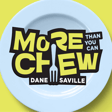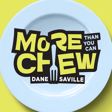
A Road Map to Genuine Thought Leadership
The idea of stepping up to share your ideas – whether on a conference stage or social media or podcast – can be an intimidating prospect. Many people share their experiences with imposter syndrome or fear of simply “being wrong.” This episode with Orbit Media’s Co-Founder and Chief Marketing Officer Andy Crestodina will help lay out a simple road map to getting your thoughts out of your head and into the ecosystem.
You’ll learn a lot throughout this insight-packed 16 minutes:
Difference between content marketing and thought leadership
Things you have to be willing to face
The role of data
A simple AI prompt to help find your voice
In the end, the real purpose of thought leadership is to start conversations, welcome disagreement, and build “a moat” around your brand.
If you’ve been sitting on the cusp of stepping out of your comfort zone and into beginning conversations – real conversations, not just getting simple agreement or affirmation – then Andy’s insights will not only set you up for success and set you at ease but give you actionable tips on how to get there.
As always, if you like what you've heard, please follow the podcast on your favorite platform and share it with your network on social media!
If you're looking for SEO or PPC services, or you'd like an audit of your website or content, please reach out to Dane Saville at dane.saville@searchlabdigital.com.
Thanks to the leadership at SearchLab Digital for making this podcast possible.

